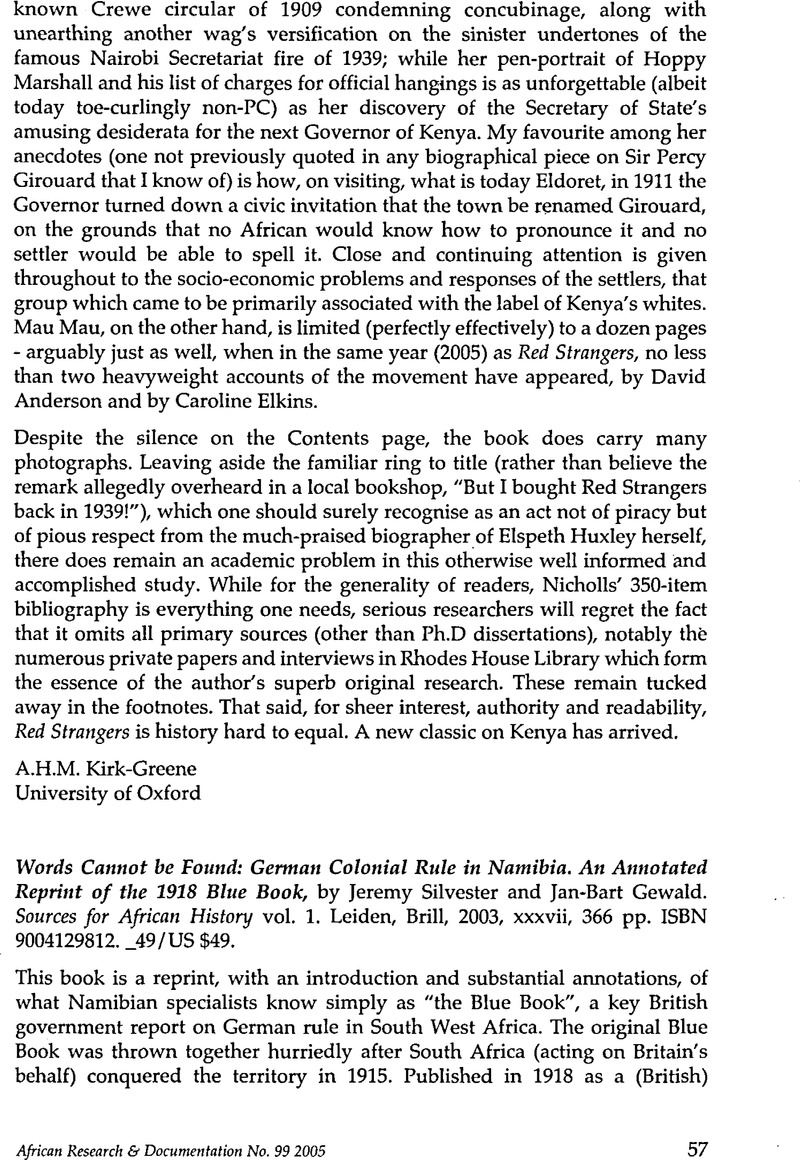No CrossRef data available.
Published online by Cambridge University Press: 25 April 2022

1 The first of these reports is Union of South Africa, Report on the Natives of South-West Africa and their Treatment by Germany HMSO, London, 1918; Cd 9146). The second (see also n. 23p. xvii) is Great Britain, Correspondence relating to the Wishes of the Natives of the German Colonies as to their Future Government (HMSO, London, 1918; Parliamentary Papers XVII, 17, Cd 9210).
2 See, for example, Jürgen Zimmerer, “Krieg, KZ und Völkermord in Südwestafrika: Der erste deutsche Genozid” in Jürgen Zimmerer and Joachim Zeller (eds), Völkermord in Duetsch- Südwestafrika: Der Kolonialkreig (1904-1908) in Namibia und seine Folgen (Berlin, Links, 2003), pp. 45-63. Note that the argument that genocide occurred in Namibia does not rest solely or mainly on the evidence of the Blue Book.
3 Item no. 6 (pp. 7-10) of this command paper is a telegram, dated 15 Feb 1918, from the governorgeneral of South Africa concerning the future of SWA; item no. 7 (pp. 10-21) is a longer report from him on the same subject, dated 9 Feb 1918 and quoting the opinions of African leaders in Namibia.
4 The editors attempt to deflect criticism of this republication as anti-German: “Colonialism and colonial rule, be it that of Germany, Great Britain, The Netherlands, or any other colonising power, was fundamentally cruel, unjust, and disrespective [sic] of fundamental human rights.” (p. xxix)
5 For example, Colonial Office files contain statements from mine labourers forced into service by the Boers after the mines had closed. TNA, CO 179/207, Natal, original correspondence, Governor's despatches, 10 and 29 Nov 1899.